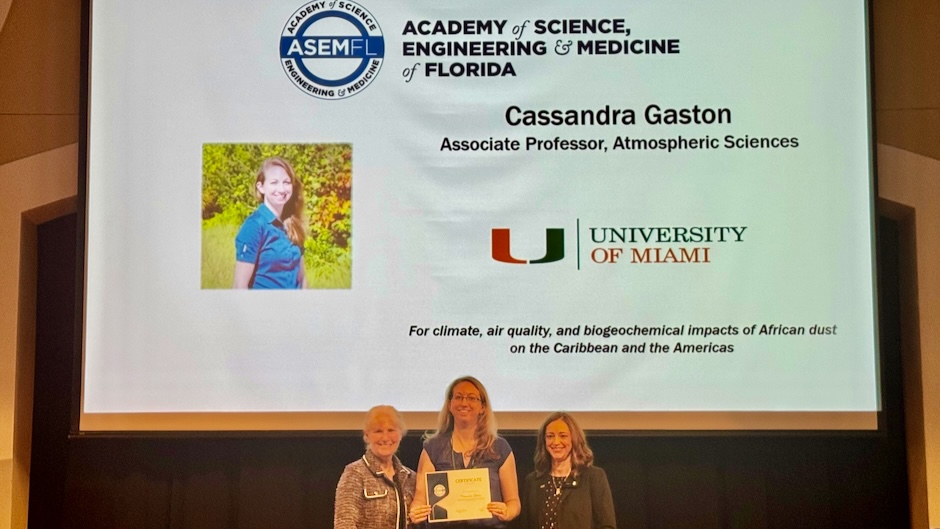Rosenstiel School associate professor Cassandra Gaston, was selected as a 2024 Rising Star by the Academy of Science, Engineering and Medicine of Florida (ASEMFL). Gaston is one of nineteen nominated rising stars recognized during a ceremony at the ASEMFL annual meeting on November 1, 2024, in Orlando, Florida.
ASEMFL recognizes the importance of new investigators whose work shows great promise in addressing critical issues towards ensuring the growth and success in its mission. Honorees are noted for their contributions to their field and are potential future ASEMFL inductees.
As one of seven scientists recognized in the Science category, Gaston is acknowledged for her contributions to research in climate, air quality, and biogeochemical impacts of African dust on the Caribbean and the Americas.
Gaston is the principal investigator for the Rosenstiel School’s Barbados Atmospheric Chemistry Observatory, which was established 50 years ago to document the transport of dust from the Sahara in Africa to the Caribbean and the Americas to determine its impact on clouds, storms, and ecosystem health in the Atlantic Ocean and Amazon Rainforest. Her work is important for understanding how atmospheric deposition can impact carbon sequestration to the ocean and terrestrial biosphere. She has also studied the ability of toxins generated from harmful algal blooms (HABs) to be aerosolized and impact air quality, and the role of dust emitted from shrinking lakebeds on reactive halogen chemistry that effect ozone and particulate matter, two of the largest contributors to poor air quality.
“These Rising Stars have made significant contributions to science, engineering and medicine and are on the cusp of consideration for full membership in ASEMFL,” said. Angela Laird, the ASEMFL secretary and a distinguished professor at Florida International University.
Gaston received her Ph.D. from the Scripps Institution of Oceanography in 2012 and was a postdoctoral researcher at the University of Washington until 2015. She is an expert in characterizing the physical and chemical properties of atmospheric particles known as aerosols, which are emitted from a variety of sources, such as smoke particles from fires and dust particles emitted from deserts. Particles emitted from these sources can facilitate the production of clouds and deposit into ecosystems thereby affecting the biogeochemical cycling of trace elements and nutrients.

